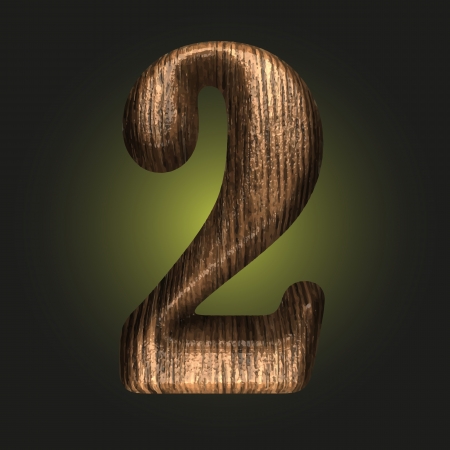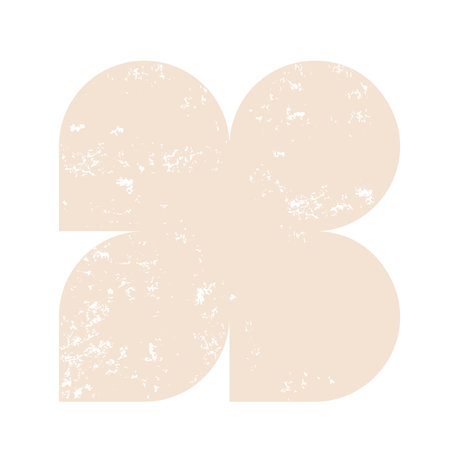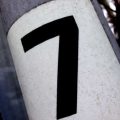Tracing the Origins: Chaldean Numerology Across the Ages
Step gently into the misty corridors of time, and you will find yourself amidst the enigmatic world of the ancient Chaldeans. This early Mesopotamian civilisation, cradled between the Tigris and Euphrates, is often celebrated as the birthplace of numerology—a mystical tradition that would echo across centuries and continents. The Chaldeans did not simply see numbers as mathematical symbols; for them, numbers were living vibrations, secret keys to understanding both fate and fortune. Their system, woven with intuition and cosmic observation, laid the groundwork for what would one day be recognised as numerology.
Through traders’ tales and scholars’ scripts, these esoteric teachings travelled slowly westward. Along winding trade routes and through whispered stories by firelight, fragments of Chaldean wisdom found their way into British folklore. Even in the green dales and shadowed woods of Britain, subtle traces linger—old superstitions about lucky numbers, cryptic runes etched into standing stones, or beliefs that certain dates held powerful meaning. The Chaldean influence may have been delicate, yet its spirit was never truly lost.
To explore the origins of numerology is to embark on a journey that straddles both history and myth. It’s a path where intuition guides each step—reminding us that in every number, there lies a story waiting to be told, just as those ancient sages once believed under Mesopotamia’s star-laden skies.
2. Pythagorean Wisdom: Numbers, Harmony, and the British Mind
To truly understand the British relationship with numerology, one must travel back to ancient Greece and the enigmatic figure of Pythagoras. This philosopher and mystic—whose name still echoes through British halls of learning—believed that numbers were not mere symbols, but living forces underpinning the cosmos. His followers saw in numbers a secret language that could unveil the mysteries of harmony, proportion, and even the soul’s journey. When these teachings crossed into Britain, they found fertile ground in a culture already attuned to cycles, patterns, and unseen order.
The influence of Pythagoras on British thought is woven through centuries of philosophy and education. Early British scholars embraced his notion of a ‘music of the spheres’—the idea that planets moved according to mathematical ratios, creating a silent symphony. This resonated deeply with medieval and Renaissance thinkers in Britain, who sought harmony not only in music, but in architecture, literature, and governance. The Pythagorean belief in numbers as bridges between material and spiritual realms inspired British alchemists and poets alike.
Pythagorean Principles in British Education
As British universities flourished from Oxford to Cambridge, Pythagorean theories became cornerstones of mathematical study. Students learned that every number carried a vibration, every geometric form a lesson about the universe’s order. The quadrivium—a curriculum comprising arithmetic, geometry, music, and astronomy—echoed Pythagoras’ teachings and shaped generations of British thinkers.
Table 1: Key Pythagorean Concepts Adopted in Britain
| Concept | Pythagorean Origin | British Application |
|---|---|---|
| Numerical Harmony | Numbers as essence of reality; harmonics in music | Music theory; architectural proportion (e.g., Gothic cathedrals) |
| The Music of the Spheres | Planetary motion follows mathematical ratios | Astronomy; poetic metaphors (e.g., Shakespeare) |
| Geometry as Sacred Science | Geometric forms embody cosmic order | Masonic symbolism; city planning; stained glass art |
| The Quadrivium | Arithmetic, geometry, music, astronomy as paths to wisdom | Core medieval curriculum in British universities |
An Intuitive Legacy in the British Spirit
The lasting presence of Pythagorean wisdom in Britain speaks to a uniquely intuitive strand within the national psyche—a sense that beneath rational inquiry lies something more mystical. From Stonehenge’s ancient alignments to Newton’s clockwork cosmos, Britons have sought meaning in pattern and number. Even today, numerology finds its way into daily life—from postcode superstitions to lucky house numbers—whispering that harmony is not just a concept but a lived experience. In this way, the Pythagorean current continues to flow quietly through the rivers of British culture.

3. Medieval Britain: Numerology in Magic, Mystery, and Manuscripts
Journey into the heart of medieval Britain, and you will find that numbers held a power far beyond mere calculation. In this age of cathedral shadows and candlelit scriptoria, numerology was woven into the very fabric of spiritual and intellectual life. The ancient Chaldean wisdom had long since crossed cultural borders, mingling with Pythagorean philosophy to create a uniquely British blend of mystical number lore.
The Secret Language of Grimoires
Hidden within the vellum pages of medieval grimoires—those enigmatic books of magic—numbers spoke in riddles and codes. British magicians and cunning folk drew upon numerological patterns to cast spells, summon protection, and interpret dreams. The number seven, for instance, echoed through rituals as a symbol of sacred cycles, while the trinity of three represented harmony and balance, an echo of both Christian doctrine and Pythagorean thought. Each incantation was carefully crafted, with numerology infusing every syllable with deeper meaning.
Alchemical Alchemy: Numbers Transforming Matter
The alchemists of medieval Britain, ever in search of the philosopher’s stone, also turned to numbers for guidance. The transformation of base metals into gold was not simply a physical process; it was a spiritual journey encoded in mathematical symbolism. Alchemical texts brimmed with references to the four elements and the mystical unity of one—the prima materia. Such numerical structures echoed ancient traditions but found new expression in the crucibles and laboratories scattered across English monastic lands.
Monastic Minds and Sacred Geometry
In quiet monasteries from Canterbury to York, monks laboured over illuminated manuscripts that shimmered with both beauty and meaning. Here, numerology guided the construction of intricate page layouts and informed interpretations of scripture. The geometry of stained glass windows mirrored cosmic order, each angle calculated according to principles handed down from antiquity. For these devoted scribes, numbers were more than tools—they were a language through which the divine revealed itself.
Thus, medieval Britain became a crossroads where Chaldean mysteries met Pythagorean reason, all refracted through the prism of local mythos and faith. Numerology enchanted minds both learned and lay, leaving its subtle trace on everything from magical rites to sacred art—a heritage still whispering through British culture today.
4. Shakespeare and the Secret Language of Numbers
Step into the candlelit theatres of Elizabethan England, and you may find that not all is as it seems upon the stage. Beneath the poetic cadence of Shakespeare’s verse lies a tapestry woven with numerological codes—mystical patterns rooted in both Chaldean and Pythagorean traditions, subtly shaping some of Britain’s most iconic literary works. The Bard himself was no stranger to symbolism; his plays and sonnets are replete with references to numbers, each carrying hidden meanings and resonances that echo through British culture.
The Numerological Influence on Shakespearean Literature
Shakespeare’s era saw a fascination with secret societies, cabalistic studies, and the esoteric arts. Within this intellectual climate, numbers were far more than simple counting tools; they became keys to unlocking cosmic truths. For instance, the number seven—long considered sacred in both Chaldean and Pythagorean systems—appears repeatedly in Shakespeare’s work: think of the “seven ages of man” from As You Like It, or the frequent use of three as a symbol of harmony and completeness.
Numerological Symbolism in Key Shakespearean Works
| Play | Significant Number | Symbolic Meaning |
|---|---|---|
| Macbeth | Three (3) | The three witches represent fate and prophecy, echoing Pythagorean concepts of balance and transition. |
| Hamlet | Seven (7) | The motif of seven is woven through soliloquies and structure, alluding to life cycles and spiritual progression. |
| King Lear | Two (2) | The duality of vision and blindness mirrors Chaldean beliefs about polarities and human nature. |
| A Midsummer Night’s Dream | Four (4) | The four lovers symbolise elemental harmony, reminiscent of ancient numerical cosmology. |
The Enduring Legacy in British Literary Culture
This secret language of numbers did not end with Shakespeare; it has continued to influence British writers for generations. From the poetic rhythms of Romantic poets to modern novelists weaving subtle numerological patterns into their prose, the tradition persists—a testament to how ancient wisdom quietly underpins even our most celebrated cultural achievements. To read Shakespeare with an intuitive eye is to embark on a mystical journey; every line becomes an invitation to decode the universe’s secrets, right at the heart of British literary heritage.
5. Modern Revivals: Numerology in Contemporary British Spirituality
As we step into the modern era, one cannot help but notice a gentle yet persistent revival of numerology across Britain. From the swinging sixties to today’s holistic festivals in Glastonbury and beyond, numbers have quietly woven themselves back into the fabric of British spiritual exploration. This resurgence, far from being a fleeting trend, appears deeply rooted in a collective yearning—a desire to reconnect with ancient wisdom while navigating the complexities of contemporary life.
A New Age Awakening
In the latter half of the twentieth century, Britain experienced a spiritual renaissance. The old forms—church bells and cathedral choirs—began to harmonise with new melodies: yoga, astrology, tarot, and yes, numerology. Within this eclectic mix, numerology became a bridge linking seekers to both Eastern philosophies and Western esoteric traditions. The Chaldean and Pythagorean systems were dusted off and reinterpreted by British authors and teachers, who began to offer workshops and write books tailored to local sensibilities.
Alternative Communities and Sacred Numbers
Across the UK, alternative communities blossomed. In places like Totnes or Findhorn, gatherings often included numerological readings alongside herbal medicine and meditation circles. Numbers became more than mere digits; they were signposts on the journey towards self-discovery. It was not uncommon for a person exploring their life path number to find it echoed in the stones of an ancient druidic circle or within the hallowed halls of Oxford colleges—a nod to Britain’s layered relationship with mystical knowledge.
Everyday Life and Popular Culture
Today, numerology’s influence can be spotted in unexpected corners of British life. Whether its couples choosing wedding dates by their numerological significance or artists weaving numerical symbolism into their works at London galleries, numbers are experiencing a quiet renaissance. The digital age has only fuelled this curiosity, with online calculators and forums allowing people from Brighton to Edinburgh to explore their personal vibrations at the click of a button.
What is perhaps most enchanting about this modern revival is its inclusivity. Numerology now sits comfortably beside mindfulness apps and crystal shops on the British high street, inviting all who are curious to peer beneath the surface of daily existence. In this way, Britain’s historical roots—Chaldean mystery and Pythagorean logic—continue to sprout fresh shoots in twenty-first-century soil, nurturing new generations drawn by the magic of numbers.
6. Everyday Mysticism: Numerology in British Customs and Superstitions
Within the patchwork of British daily life, numerology quietly weaves its ancient threads into cherished customs and subtle superstitions. The historical echoes of Chaldean and Pythagorean numerological philosophies find new life in the ordinary rituals of the British Isles, often unnoticed yet deeply felt. Numbers, far from being mere symbols, have become silent guides and storytellers in homes and hearts across the nation.
House Numbers: Portals of Fortune
From the cobbled lanes of York to the Georgian terraces of Bath, Britons have long imbued house numbers with meaning beyond utility. The avoidance of number 13 when buying or renting a home is almost instinctual—a quiet nod to numerological caution inherited through generations. Conversely, properties adorned with number 7 or multiples thereof are eagerly sought after for their reputation as bearers of good luck, echoing both Pythagorean reverence for numerical harmony and local folklore’s faith in auspicious signs.
Lucky Dates and Life Events
The selection of wedding dates, christenings, or even embarking on new ventures is often guided by an intuitive sense of ‘good’ numbers. British couples might consult calendars—sometimes even consulting a numerologist—to ensure their nuptials align with harmonious digits. This practice harks back to both Chaldean cycles and Pythagorean teachings that certain numbers carry vibrations capable of influencing destiny.
Everyday Rituals: Counting Blessings
Daily life is peppered with small numerological gestures: knocking three times for luck before entering a room; stirring Christmas pudding clockwise seven times while making a wish; or counting magpies spotted on a morning walk, reciting the rhyme “One for sorrow, two for joy.” These folk customs reveal how ancient numerical wisdom seeps into contemporary routines, connecting the mystical past to modern living.
Numbers in British Folklore
Numerical motifs pulse through countless tales told beside firesides or under village oaks. From the significance of three wishes granted by a fairy to the ominous prophecy if thirteen gather at a table, these stories reflect an intuitive trust in numbers as channels for fate and fortune. The enduring popularity of such beliefs highlights how the Chaldean and Pythagorean traditions remain alive within Britain’s collective imagination.
A Living Tradition
In every quietly chosen date, every lucky charm carried on a journey, and every careful glance at a house number, Britons unconsciously honour the ancient roots of numerology. Through these everyday acts, numerical mysticism continues to shape hopes, decisions, and destinies—proving that in Britain’s story, numbers are never just numbers; they are timeless companions along the winding path of life.


